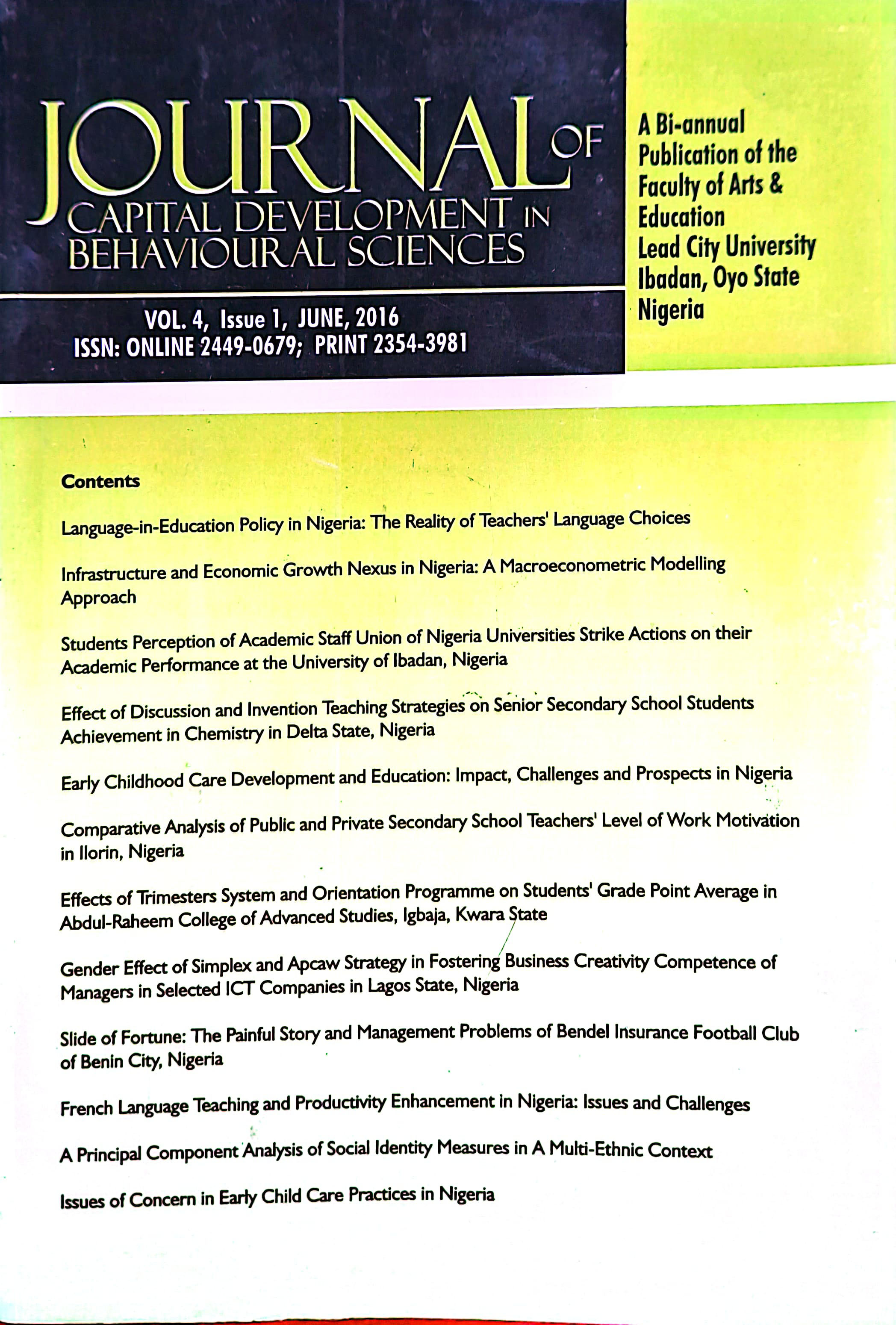Language-in-Education Policy in Nigeria: The Reality of Teachers’ Language Choices
Keywords:
: Language Choice, Code Switching, Medium of Instruction, National Policy on EducationAbstract
The study investigated teachers’ choice of the medium of instruction in
public primary schools in Ile-Ife, Nigeria. The study specifically identified
the languages used in mathematics classrooms in the selected schools,
examined the reasons for teachers choices of language, and determined the
effects of these choices on the teaching-learning process. The data for the
study were obtained from five mathematics teachers and fifty pupils from
five purposively selected primary schools through ethnographic observation
and structured interviews. Data collected were analysed using MyersScotton’s Matrix Language Framework model, as well as descriptive and
inferential statistics. The results showed that teachers in the schools used
both English and the pupils’ regional languages (such as Yoruba, Igbo and
Hausa), where the regional languages were the matrix language and English
was the embedded language, as the media of instruction in their classrooms.
The teachers surveyed claimed that their choice of the pupils’ regional
languages was necessitated by the fact that it allowed each pupil to learn
effectively in his/her languages in a natural, meaningful way as the various
classroom activities were being implemented. The study concluded that
the use of pupils’ home languages in multilingual classrooms does not result
in a deficiency in learning, but is a useful strategy in classroom interaction
and an efficient way of transferring knowledge to primary school pupils.

